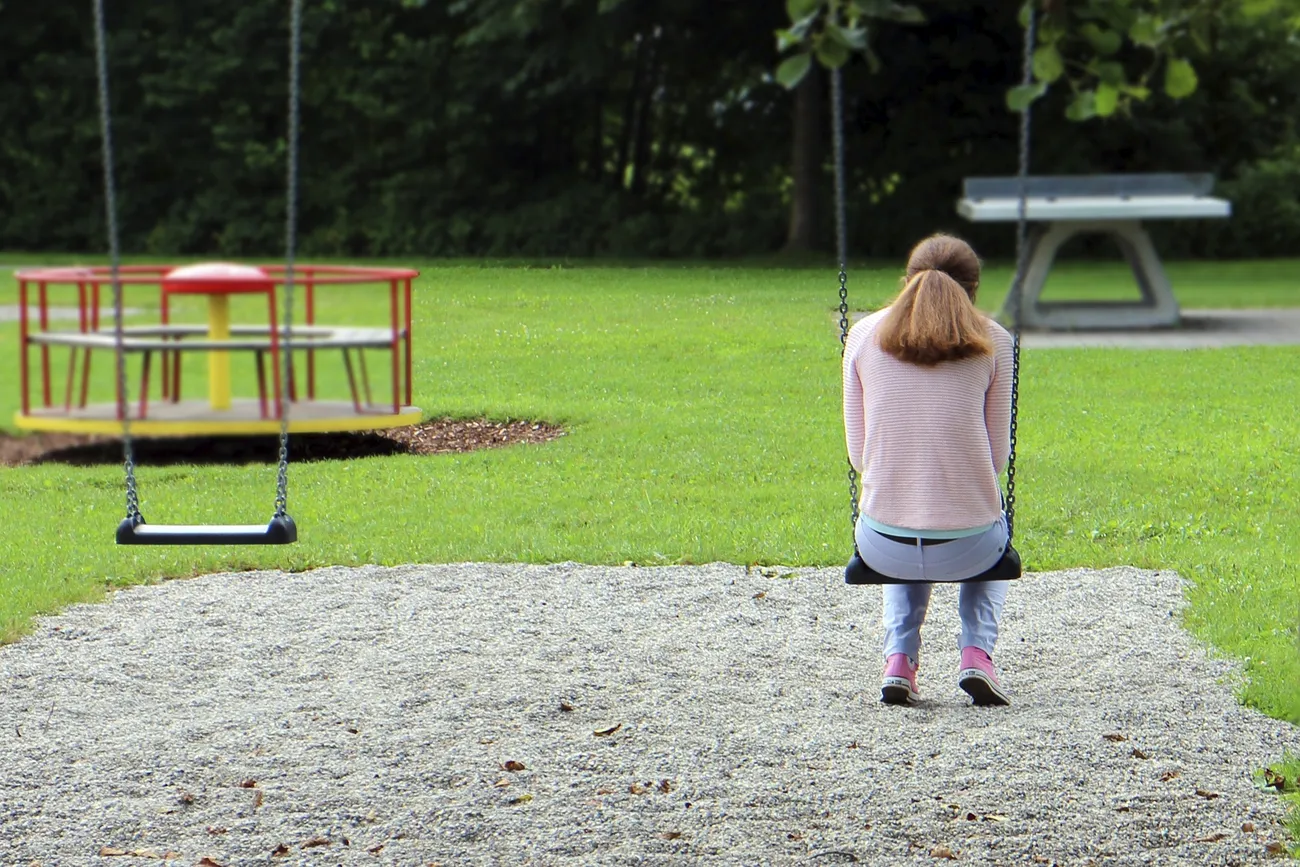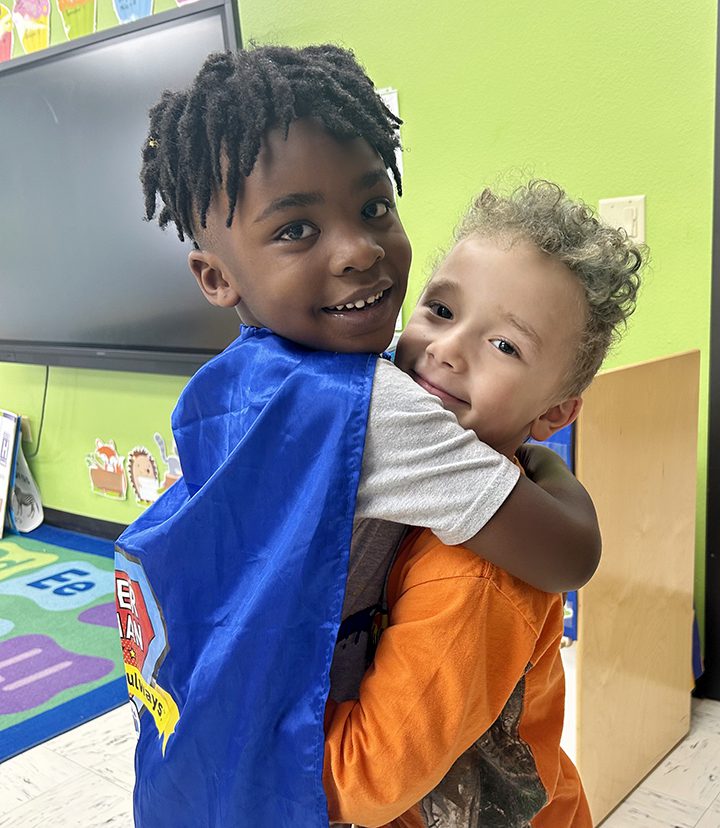Easy ways to support students on World Mental Health Day 2022
October 10, 2022
 World Mental Health Day is not just for adults to acknowledge: Research shows up to 20% of youngsters experience mental health problems, and it reaches 50% by early teens. Sadly, access to support, as well as treatment, is far less available.
World Mental Health Day is not just for adults to acknowledge: Research shows up to 20% of youngsters experience mental health problems, and it reaches 50% by early teens. Sadly, access to support, as well as treatment, is far less available.
To help the children in your life assess their mental health, here are the signs that there might be a problem — and here are some ways we can help.
World Mental Health Day is October 10, 2022
Announced by the World Federation For Mental Health, this year’s theme is Make Mental Health & Well-Being for All a Global Priority. It refers to how COVID-19 has exposed the lack of preparation for mental health issues worldwide and calls for action to help improve opportunities and make the world a better place.
Globally, children have been isolated during these early years when learning and social interactions are so important.
It is estimated that 1 in 6 children have a mental health problem.
And the likelihood of developing one has increased by 50% in recent years. No doubt, many things have exacerbated this problem, including:

- COVID-19 lockdowns
- Remote/Zoom learning
- Social media
But there are ways you can help. Whether you’re a parent, adult or educator, there are signs you can look out for and actions you can take to help them begin to work through their issues.
Mental Health signs to look out for:
- Withdrawing or self-isolating from friends and family
- Hesitation to communicate
- Trouble sleeping
- Sadness
- Easily irritated
- Anxiety around new people
- Changes in habits like eating or playing
- Self-harm
If you notice any of these signs, keep a close eye on them to see if there are more symptoms. If there are, here are some ways you can provide help.
How to support children with suspected mental health issues:
Lead by example
Young children learn by observing the world around them. We all do to an extent, but for those who don’t have the facility to help themselves, seeing other people act in healthy ways guides their choices.
 If you’re an adult who works or lives around children and you’re having issues with stress, anxiety or other mental health issues, showing healthy coping mechanisms – and explaining when asked – can help them learn. For example, trying breathing exercises or using stress balls. If you need a break for your mental health, let them know you need a mental health walk or you need to do something to take your mind off a difficult subject.
If you’re an adult who works or lives around children and you’re having issues with stress, anxiety or other mental health issues, showing healthy coping mechanisms – and explaining when asked – can help them learn. For example, trying breathing exercises or using stress balls. If you need a break for your mental health, let them know you need a mental health walk or you need to do something to take your mind off a difficult subject.
Showing and telling children is a great way to give them options for their own mental health management and can lead to valuable conversations.
Be open to talking about it
Keeping calm and carrying on may work in some situations, but burying your feelings is not a healthy way to manage them.
You can help the children in your life learn to talk about their issues by sharing your thoughts first. This helps show that you trust them and that they can trust you. It also tells them that you are there to listen whenever they would like to share in return.
Do some exercise together
![]() Physical activity has long been recommended for those suffering from mental health issues due to the increase in endorphins that it gives. While lengthy runs and cycling may not be suitable for your child, playgrounds offer excellent opportunities for exercise to support child mental health.
Physical activity has long been recommended for those suffering from mental health issues due to the increase in endorphins that it gives. While lengthy runs and cycling may not be suitable for your child, playgrounds offer excellent opportunities for exercise to support child mental health.
Playgrounds tend to challenge a child’s problems-solving and cognitive skills while working muscle groups that aren’t regularly used. Focusing on something else, combined with the rush of endorphins, can help them feel better. Plus, if their mental health issues are related to social anxiety, a trip to the playground can help them make friends.
Encourage routines and boundaries
If things happen at the same time every day, that removes an element of uncertainty that can make a child feel anxious. If you include boundaries and are clear about what’s expected, that can help too, as you both have guidelines to work within.
Take them seriously
 Children’s feelings and actions can be written off as growing pains or “they don’t know any better.” Well, it’s up to you to help them acclimatize and learn. If a child comes to you with issues or exhibits destructive emotions, take them aside and listen to what they have to say.
Children’s feelings and actions can be written off as growing pains or “they don’t know any better.” Well, it’s up to you to help them acclimatize and learn. If a child comes to you with issues or exhibits destructive emotions, take them aside and listen to what they have to say.
Taking their feelings seriously and not judging them for their actions is a great way to show that you care and are there to support them. It also helps validate their emotions and allows you to help them with more constructive coping methods.
World Mental Health Day 2022 is a great opportunity to connect with those around you and take stock in how everyone is doing. Remember to check in with the students and young people in your life — and help them when you can.
Author: Debbie Woodliffe
Written for the exclusive use of RespectfulWays.com
Debbie Woodliffe is a university-educated and experienced writer based in the UK with over 11 years in the content industry. She is currently working as Head of Content & Outreach at Affinity Agency with a range of health, wellness and educational clients such as Online Playgrounds.
Respectful Ways offers social-emotional learning curriculum for three age groups: PreK-2, 3-5, and 6-12 students using interactive, digital modules on compassion, perseverance, respect and responsibility.
This entry was posted in Blogs, RW In The News, SEL News and tagged worldmentalhealthday, worldmentalhealthday2022. Bookmark the permalink.


 Our 1st graders loved the Be Kind: It Feels Good course. The Kindness Hunt and bucket filling activities were the best. Very engaging.
Our 1st graders loved the Be Kind: It Feels Good course. The Kindness Hunt and bucket filling activities were the best. Very engaging. The Bored, Get Creative module was perfect for our 4th graders pre-winter break. We talked about things they could do if “bored”.
The Bored, Get Creative module was perfect for our 4th graders pre-winter break. We talked about things they could do if “bored”.